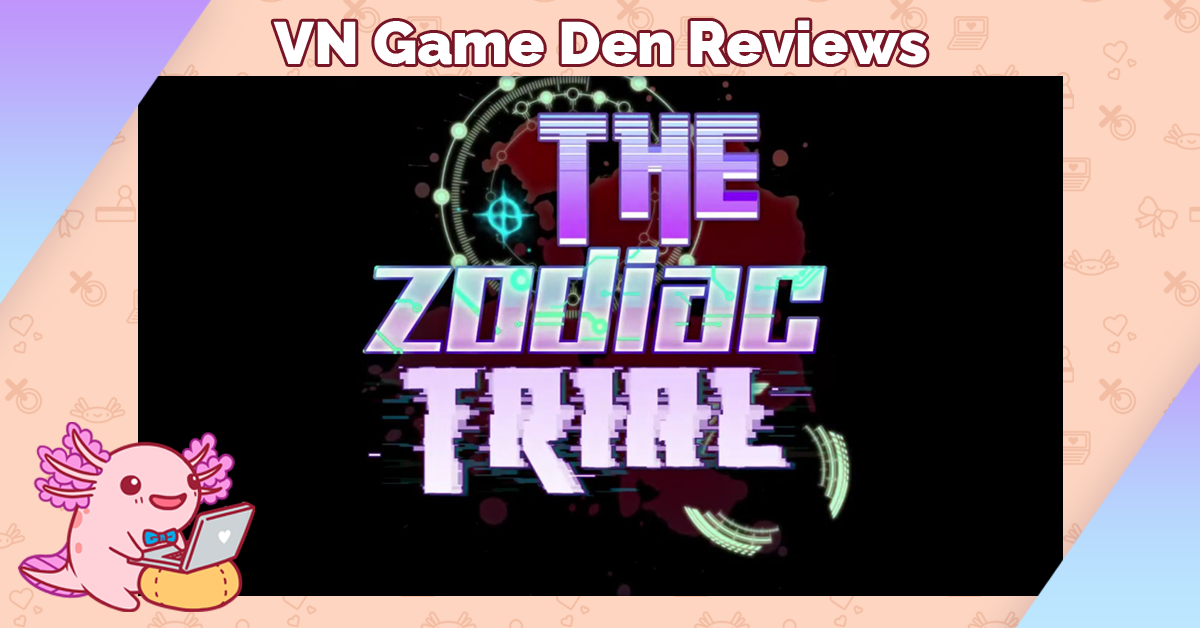VN Game Den received a review copy of The Zodiac Trial.
Our protagonist, a young law student, regains consciousness in an unfamiliar place after being kidnapped—and finds that she isn’t alone. A total of twelve people have been captured and taken to an empty school for a deadly game known as the Zodiac Trial, structured as a race. If they win the race, they can escape with their lives, but failing to win will result in execution at the hands of the game’s mastermind.
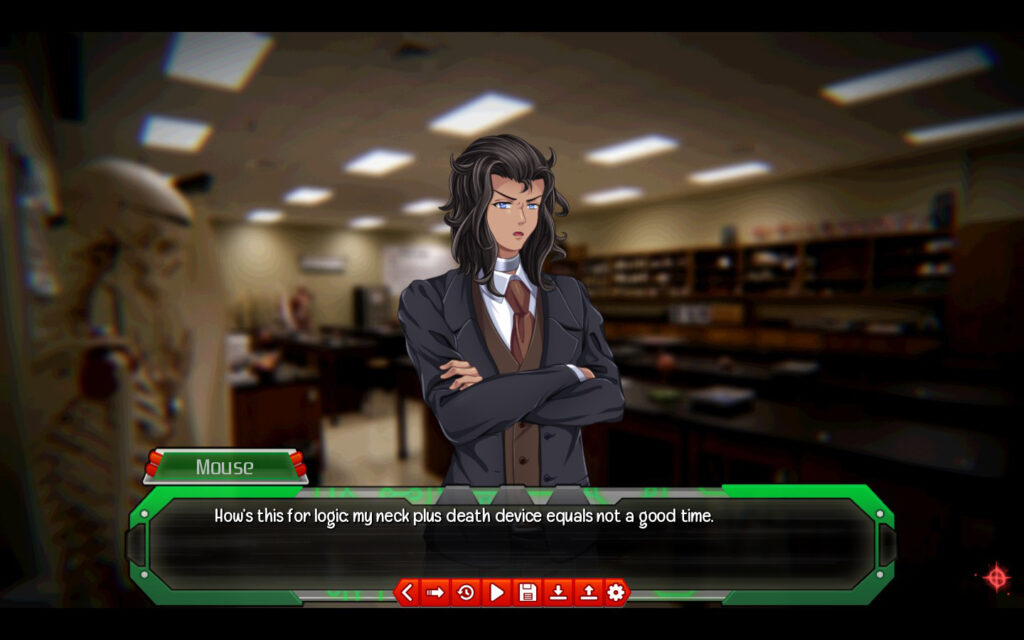
It isn’t long before they connect the pieces and realize that the Zodiac Trial is being performed because of a case in which a man was convicted of murder, to which they all have at least tenuous connections. The mastermind appears to be the suspect’s son, who is using the game in order to get revenge on the people he considers guilty and see how they’ll act when their lives are on the line. Revealing this motivation so early might appear to be an odd choice, but it actually works in the story’s favor as the mysteries and questions begin to build.
Each person has been assigned an animal motif (which they also use in place of their names, to remain anonymous), a personality type, and a special ability, and there are also items hidden throughout the school that will help them in the race. They develop a strategy to ensure everyone escapes together, but it isn’t long before the mastermind throws a wrench into their plans by announcing an additional rule—one that means two participants have different victory requirements than everyone else.
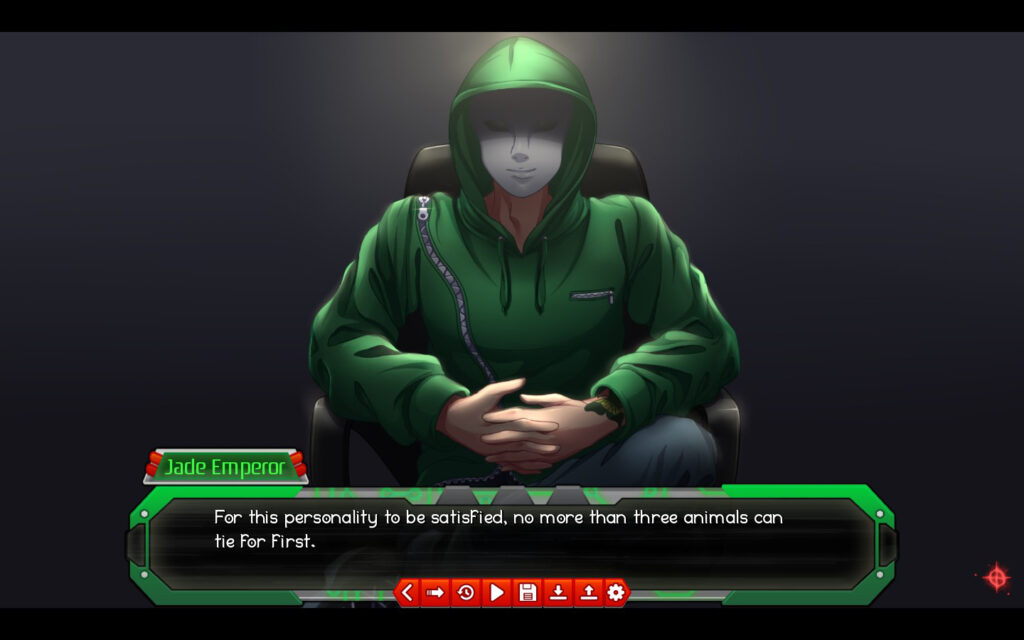
This opens up a great number of potential directions for the story to take, because the mastermind changes which personalities fall under different rules depending on the choices you made ahead of that point. No matter which they are, however, the new rules give those characters great incentive to sabotage the others. Since you don’t know anyone’s personality besides that of the protagonist, Mouse, that leads you to the paranoid sense that anyone could be your enemy once things start going wrong. Of course, the more routes you play, the more you’re able to narrow down other characters’ personalities, but that doesn’t change the amount of variety there is in the game’s branching paths.
In fact, there are 13 major routes to end up on based on your choices, and each route has 4 different endings: one debatably “good” ending and three bad outcomes. Some of the bad endings are pretty abrupt, but others have more depth to them. More importantly, the routes themselves are fairly distinct. One route might have characters dying one-by-one while you try to determine who the culprit is, while another route might reveal the traitor early and force you into a fight for survival.
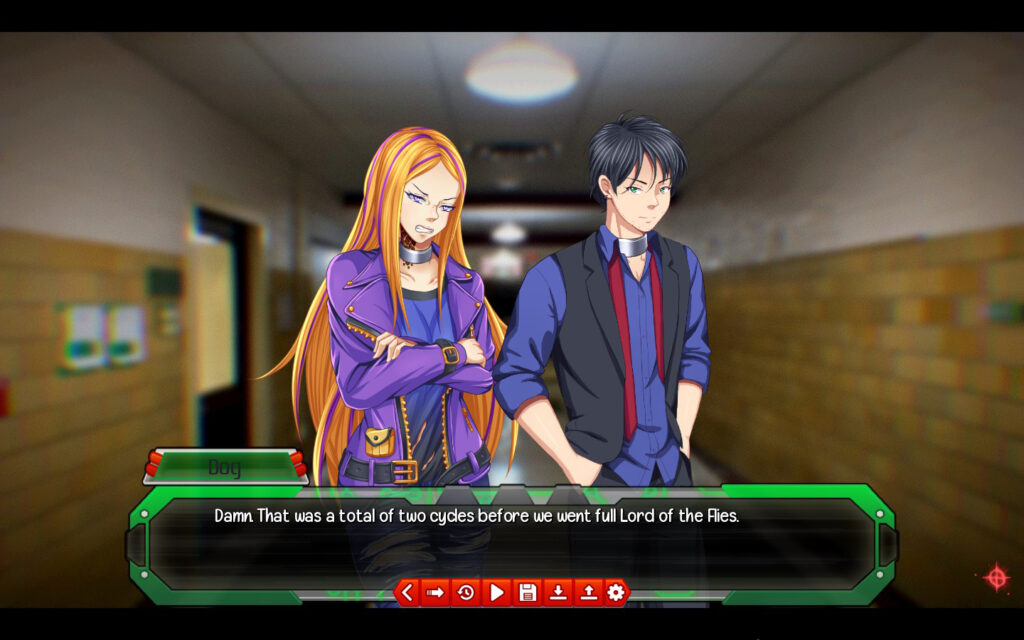
Each also reveals more detail about the major characters that is otherwise only hinted at in other routes. The characters are fairly entertaining, even if some of them rely a bit too much on a specific gimmick for their personality, and it does a good job of showing how certain circumstances could drive them to murder despite them being trusted allies on other paths. Following all the different story paths and seeing how everything plays out is interesting, and the overarching story behind the Zodiac Trial and the mastermind’s motives also proves to be a compelling—if sometimes convoluted—plot.
While the story routes have a lot of variety, the same can’t be said for the gameplay. Due to the basic premise of solving puzzles to find helpful items and investigating crime scenes, you might expect The Zodiac Trial to have adventure game elements. Instead, it is fully a visual novel, with your decisions only coming in the form of choices. Dialogue and narration handles any investigation and puzzle-solving, and while you do have a handful of puzzles to solve, another character will usually solve it for you if you get the wrong answer. Your decision-making relates more to assessing the situation and choosing the best way to proceed.
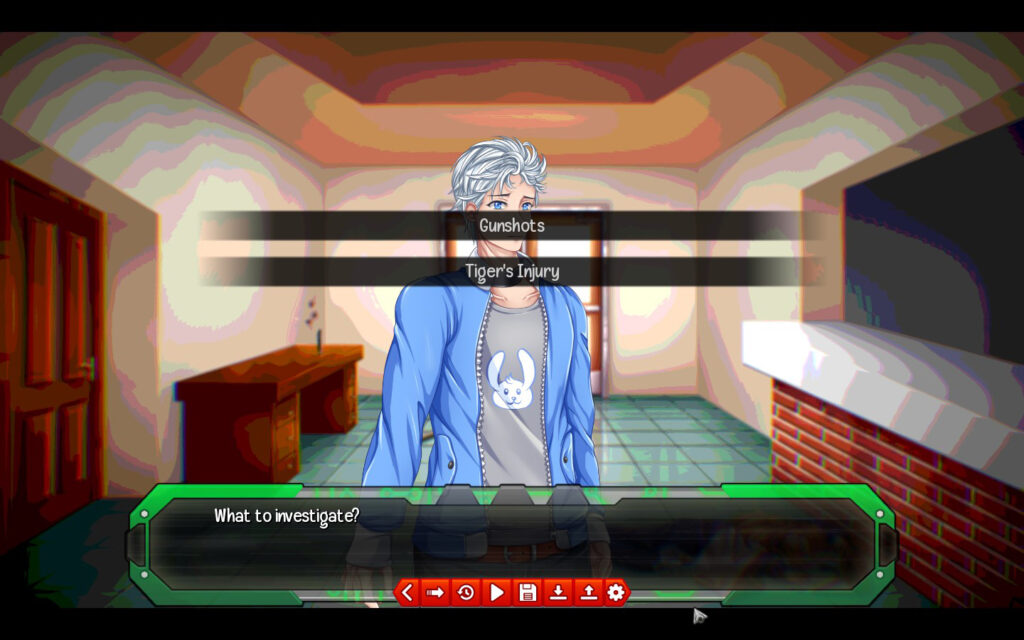
Unfortunately, there is one part of the gameplay that sours the experience somewhat due to the game’s structure. On a certain route, you’ll need to enter information you learned on other routes. Unless you know ahead of time to memorize these particular details, it’s likely you’ll have forgotten them… which means you’ll need to start from the beginning and find your way back to the correct routes to see the answer. The ability to skip read text means this isn’t as frustrating as it would be otherwise, but it’s still tedious. The Zodiac Trial would have greatly benefited from a flowchart or similar mechanic to let you quickly revisit specific branches. Meanwhile, the true route requires you to figure out the convoluted truth behind the story and answer several questions correctly in a row, which is likely to be a frustrating point for many players.
Aside from that, the only other things I found off-putting were the backgrounds and lack of CGs. While the character sprites have lovely art, the backgrounds all have a blurred style that I didn’t find appealing. And although there are CGs at certain important moments, there are several points that feel like they should have them but don’t—such as murder investigations, in which characters will examine and discuss the state of a body without the body actually being seen. Several typos are scattered throughout the text as well, although not to the point where it becomes a problem to read.
In the end, The Zodiac Trial is an interesting visual novel with numerous routes and many endings, well worth considering for fans of “death game” stories who want one that’s much more focused on reading and decision-making over other types of gameplay.

